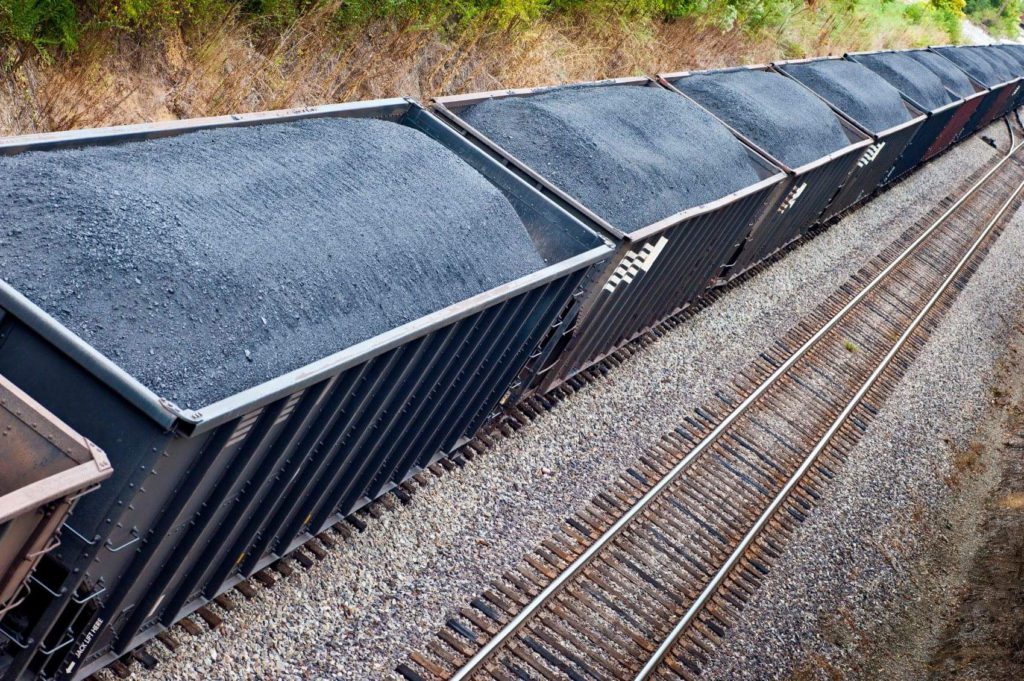Coal, lumber among goods threatened by potential rail strike

Commodities groups are sounding the alarm as a potential railway strike threatens to cripple transportation of vital goods from food and lumber to coal.
Freight railroads and labor unions worked through the weekend to try to avoid a strike that could cost the US economy more than $2 billion a day, though there isn’t much sign of progress ahead of a potential Sept. 17 walkout. A strike would threaten shipments of grains, fertilizer and energy when global food prices are elevated and inflation ripples through economies.
The threat comes as the world increasingly turns to the US for food supplies, with Russia’s war in Ukraine roiling commodity markets and disrupting grain shipments from the Black Sea, one of the world’s breadbaskets. The US coal industry also faces significant impacts since the vast majority of the power-plant fuel is transported by train.
“Coal would stop,” said Ernie Thrasher, chief executive officer of Xcoal Energy & Resources LLC, the biggest US exporter. “No coal is going to move until these guys go back to work.”
A strike could impact all major US railroads, including BNSF, Union Pacific and CSX Transportation. Ten of 12 railroad workers’ unions have struck new labor deals, there are two holdouts — the Brotherhood of Locomotive Engineers and Trainmen and the International Association of Sheet Metal Air, Rail, and Transportation Workers.
President Joe Biden and Cabinet officials were in touch with freight-rail companies and unions on Monday in an effort to avert a strike, according to a White House official. Biden’s personal involvement in the stalled labor talks signifies show how seriously the White House is taking the possibility of a work stoppage.
Lumber prices are already reacting to the possible labor threat, soaring to levels not seen in a month due to shipment concerns. Futures contracts rose 9.6% on Monday in Chicago to reach the exchange limit of $559.80 per 1,000 board feet, the highest price since Aug. 18.
Fertilizer shippers are already preparing for the worst.
“Rail networks are complicated, and carriers must make preparations ahead of a potential stoppage to keep certain types of cargo safe and secure,” the Fertilizer Institute’s CEO Corey Rosenbusch said in a Saturday statement. “Fertilizer falls into that category and is being taken off the rails. That is bad news for farmers and food security.”
The looming stoppage comes as US growers are about to apply fall fertilizer, said Jeff Blair, CEO of GreenPoint Ag, an agriculture supply company in the southern US. Rail is a key part of the nation’s agriculture supply chain and moving fertilizer to farmers and crops, he said.
“With the global food shortage due to Russia’s invasion of Ukraine and high inflation, any strike would be brutal for farmers, the industry and the public,” Blair said.
The possible disruption could hit just as American farmers harvest key crops, including a record soybean bounty.
“The potential of service slowdowns or stoppages ahead of the harvest season is incredibly concerning,” American Soybean Association spokeswoman Wendy Brannen said.
A stoppage could also pose broader impacts to energy security, threaten to push up costs and undo progress on solving supply-chain issues that are driving up inflation, according to National Mining Association CEO Rich Nolan.
“A rail strike could create a debilitating logistics chokepoint for the movement of energy and materials resources,” he said in an emailed statement. “The US has abundant mined resources, but they are dependent on reliable, efficient rail service.”
(By Elizabeth Elkin, Jen Skerritt and Will Wade, with assistance from Kim Chipman, Augusta Saraiva, Marvin G. Perez and Dominic Carey)
{{ commodity.name }}
{{ post.title }}
{{ post.date }}




Comments